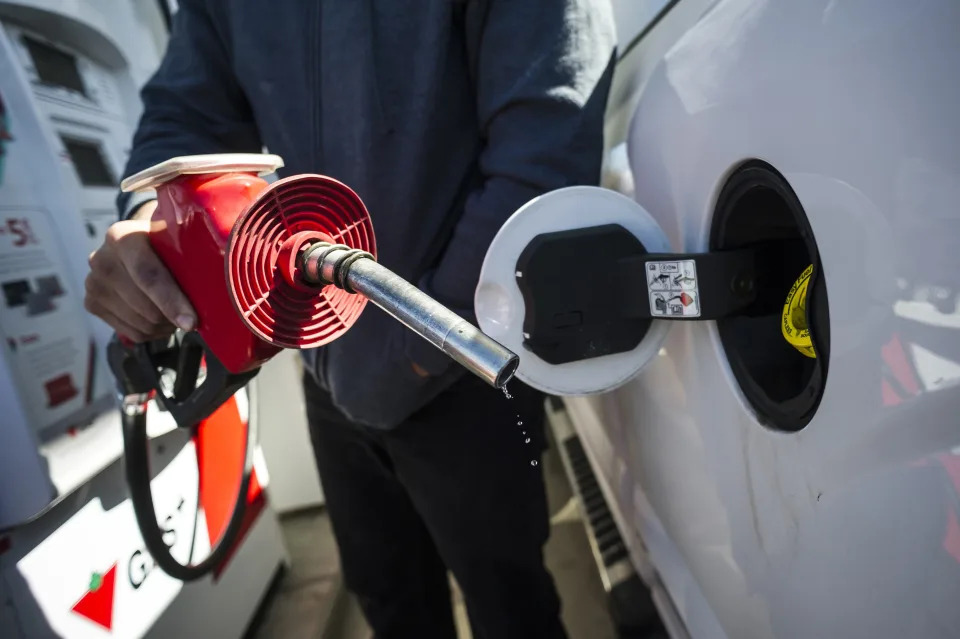Saskatchewan, Alberta, and Newfoundland and Labrador will see the highest cost from incoming clean fuel regulations, according to the PBO.
Jeff Lagerquist
Thu, May 18, 2023

Jeff Lagerquist
Thu, May 18, 2023
(THE CANADIAN PRESS/Christopher Katsarov)
Lower-income Canadian households will lose a bigger chunk of their income than the wealthy under Ottawa’s incoming rules to cut the carbon intensity of gasoline and diesel, according to Canada’s’ budget watchdog.
The Parliamentary Budget Officer (PBO) called the federal government’s Clean Fuel Regulations set to take effect on July 1, 2023 “broadly regressive” in a report published Thursday.
The policy is part of the Trudeau government’s plan to reach net-zero emissions by 2050. Under the rules, fuel suppliers will have until 2030 to cut the quantity of carbon per unit of energy in gasoline and diesel by about 15 per cent below 2016 levels. Assuming the price is passed onto consumers, the report estimates gasoline prices in 2030 will cost an additional $0.17 per litre, and diesel prices an extra $0.16.
For lower-income Canadian households in 2030, that will cost $231 or 0.62 per cent of disposable income, according to the PBO’s analysis. Higher income households are estimated to pay $1,008, or 0.35 per cent of disposable income.
“Lower income households generally spend a larger share of their income on transportation and other energy-intensive goods and services compared to higher income households,” Parliamentary Budget Officer Yves Giroux stated in a news release.
Higher Clean Fuel Regulation costs by province
Broken down by province, the PBO found Saskatchewan, Alberta, and Newfoundland and Labrador will experience the highest costs, reflecting the greater fossil fuel intensity of their economies.
Franco Terrazzano, federal director of the Canadian Taxpayers Federation, is calling for the government to scrap the policy in light of the PBO’s findings.
“Canadians are already struggling to afford gasoline and groceries and the last thing we need is another carbon tax that makes life more expensive,” he said in a statement.
Clean Energy Canada, a research group based at British Columbia's Simon Fraser University, called the PBO’s analysis “the worst-case scenario that imagines climate change doesn’t exist and fails to capture the economic benefits of transitioning to cleaner energy,” in a tweet.
Jeff Lagerquist is a senior reporter at Yahoo Finance Canada. Follow him on Twitter @jefflagerquist.
Lower-income Canadian households will lose a bigger chunk of their income than the wealthy under Ottawa’s incoming rules to cut the carbon intensity of gasoline and diesel, according to Canada’s’ budget watchdog.
The Parliamentary Budget Officer (PBO) called the federal government’s Clean Fuel Regulations set to take effect on July 1, 2023 “broadly regressive” in a report published Thursday.
The policy is part of the Trudeau government’s plan to reach net-zero emissions by 2050. Under the rules, fuel suppliers will have until 2030 to cut the quantity of carbon per unit of energy in gasoline and diesel by about 15 per cent below 2016 levels. Assuming the price is passed onto consumers, the report estimates gasoline prices in 2030 will cost an additional $0.17 per litre, and diesel prices an extra $0.16.
For lower-income Canadian households in 2030, that will cost $231 or 0.62 per cent of disposable income, according to the PBO’s analysis. Higher income households are estimated to pay $1,008, or 0.35 per cent of disposable income.
“Lower income households generally spend a larger share of their income on transportation and other energy-intensive goods and services compared to higher income households,” Parliamentary Budget Officer Yves Giroux stated in a news release.
Higher Clean Fuel Regulation costs by province
Broken down by province, the PBO found Saskatchewan, Alberta, and Newfoundland and Labrador will experience the highest costs, reflecting the greater fossil fuel intensity of their economies.
Franco Terrazzano, federal director of the Canadian Taxpayers Federation, is calling for the government to scrap the policy in light of the PBO’s findings.
“Canadians are already struggling to afford gasoline and groceries and the last thing we need is another carbon tax that makes life more expensive,” he said in a statement.
Clean Energy Canada, a research group based at British Columbia's Simon Fraser University, called the PBO’s analysis “the worst-case scenario that imagines climate change doesn’t exist and fails to capture the economic benefits of transitioning to cleaner energy,” in a tweet.
Jeff Lagerquist is a senior reporter at Yahoo Finance Canada. Follow him on Twitter @jefflagerquist.
No comments:
Post a Comment